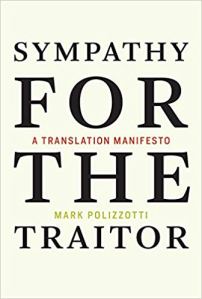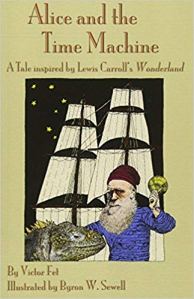When Writers Who Are Not Russian Write Novels Set in Russia
Posted on August 20, 2018 by U.R. Bowie

Some time back I wrote a review of The Conductor, by a writer from New Zealand, Sarah Quigley—the review is available here on the site of Dactyl Review. Set in Leningrad during the Nazi siege of WW II, the book details the life of a rather unassuming and humble musician, who gets his chance to conduct Shostakovich’s Seventh Symphony, dedicated to the besieged city. Quigley’s novel is good, especially sparking for its insights into classical music and its depictions of Shostakovich, but it is full of details that produce unintentional comic effects.
These details are indicative of a writer who knows little about Russian life and culture, speaks no Russian, and may not have ever set foot in the city of St. Petersburg (Leningrad). In one of the biggest howlers in the book, The Bronze Horseman—that statue of Peter the Great in Petersburg and the most famous monument in the whole country—is described as waving a sword in one hand. The fertile imagination of the author conjures up that sword and describes it in some detail: “His sword had a greenish hue towards the hilt, but its tip was bright from the touch of many hands.” Nice sword, except that on the actual statue it does not exist.
I’ve recently read two other novels set in Russia: (1) David Benioff, City of Thieves (Viking Penguin, 2008) and (2) Amor Towles, A Gentleman in Moscow (Viking, 2016). Both books have been well received, attracting favorable reviews and scads of readers. And with good reason, since they both have appealing characters and fascinating plots. Continue reading →
Posted in just literary fiction | 2 Comments
The Surprising Place by Malinda McCollum
Posted on August 13, 2018 by Charles Holdefer

Good book titles play with a reader’s expectations. A short story collection called The Surprising Place (University of Massachusetts Press, 197 pages) might seem to imply an emphasis on locale, a Winesburg, Ohio-ish evocation of a town and its inhabitants. And, in fact, this volume of stories takes its title from a former promotional slogan for Des Moines, Iowa, which provides the backdrop for most of the action. Still, what is “surprising” in Malinda McCollum’s excellent new book and winner of the Juniper Prize for fiction is not a matter of geography, in the prosaic sense. Rather, it concerns a different kind of space, a province of heart and mind. For lack of a better term, you could call it interiority. McCollum offers intensely observed portraits of her characters’ internal struggles which are often unsettling and full of contradiction.
Though not presented in a linear fashion, many of these dozen stories follow the adventures of a man named Green, from his adolescence to early adulthood to precarious middle age to his deathbed. Green’s name is apt, for at every age, he seems on the wrong end of the learning curve. In stories like “He Ain’t Jesus” and “Think Straight,” Green’s mishaps are largely self-inflicted, and he is the victim of his own schemes.
His wife Nora endures his philandering and other flaws but she is no longsuffering cliché. She inhabits a complicated mental world of her own, as revealed in the story entitled “Sharks.”Continue reading →
Posted in just literary fiction, short story collection | 1 Comment
The Best American Short Stories, 2017
Posted on August 5, 2018 by U.R. Bowie

The Best American Short Stories, 2017 (Selected from U.S. and Canadian Magazines by Meg Wolitzer with Heidi Pitlor), Houghton Mifflin Harcourt, 2017, 303 pp.
Ten years ago the writer Elif Batuman wrote an article on two anthologies titled Best American Short Stories, for the years 2004 and 2005. Her amazing conclusion, well-reasoned and argued, was that many of the “best stories” in these collections were not very good stories. As she puts it, “Contemporary short stories contain virtually no reference to any interesting work being done in the field over the past twenty, fifty, or hundred years; instead, middle-class women keep struggling with kleptomania, deviant siblings keep going in and out of institutions, people continue to be upset by power outages and natural disasters, and rueful writerly types go on hesitating about things.” Domestic realism. Urggh.
That urggh added on there belongs to me, and I amplified upon it in a long jeremiad published on Dactyl Review: “The New Yorker Short Stories (“The Great Boondoggle of the American Short Story”). Anyone interested can read the whole thing, but I will sum up its main point here: the MFA racket and the creative writing swindle in American universities have cheapened the value of the American short story, so that what are supposed to be the best American literary journals now publish huge numbers of weak stories in the gruesome genre of “domestic literary fiction.” Continue reading →
Posted in just literary fiction, realist fiction, short story collection | Leave a comment
On Literary Translation
Posted on July 30, 2018 by U.R. Bowie

These remarks are based, largely, on Emily Wilson’s book review of Mark Polizzotti, Sympathy for the Traitor: A Translation Manifesto (MIT Press, 2018). The review appears in the New York Review of Books, May 24, 2018, p. 46-47.
Assuming that most of us are not bilingual or trilingual, without literary translation we cannot read novels, stories, poems written in foreign languages. But practically no one seems to agree on what makes for a good literary translation. The crucial question always seems to be how much leeway the translator is given. Must he/she (1) remain very close to the original, producing a literal translation that may not read well in the target language? (2) diverge from the original to produce a kind of imitation? (3) push the imitation so far that it amounts to a traducing of the original (even though it may read well and be a work of creative art in the target language)? Continue reading →
Posted in just literary fiction
.
Alice and the Time Machine by Victor Fet
Posted on July 6, 2018 by VN Alexander
Victor Fet, a colleague with whom I have shared adventures in art and science, offers Alice and the Time Machine (Evertype, 134 pages, illustrated by Byron W. Sewell) on the 150 anniversary of the publication of Alice’s Adventures in Wonderland and the birth of H.G. Wells. The novella brings together Alice Liddell, Charles Dodgson (aka Lewis Carroll), John Dalton (of atomic theory fame), Charles Darwin, Francis Galton (Darwin’s half-cousin) and Wells, who arrives in Darwin’s time of 1862 from 1892 via a time machine. Together they determine that Alice’s mad tale is actually a message from the future, warning them of coming chaos, bloody wars, catastrophic pollution and tyranny. They form the Time Corps and use the time machine to contact scientists past and future to enlist their aid to try to change the world for the better. As they do their work, they notice changes in their own time. At the beginning of the tale, Wells is a nobody but becomes a famous science-fiction author while the other Wells fades in his memory as if a dream. Continue reading →
Posted in historical fiction, science fiction | Tagged comic literary fiction, literary fable, unassuming literary style | 2 Comments

